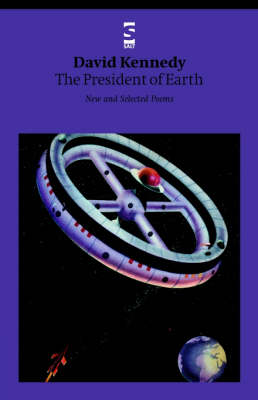Salt Modern Poets
2 total works
What does the Devil like to read? In the title poem of David Kennedy's new collection he delights in books that describe the ease with which people lose things, care about the wrong things, believe that caring about some things is unnecessary or that neglecting others is the right thing to do.
The relationship between care and neglect and how we choose or choose not to apply them is a constant theme in The Devil's Bookshop. It is a relationship that is at the heart of moving elegies that rehabilitate Gaetan Dugas, the man erroneously held responsible for spreading AIDS through America in the 1980s, and pay tribute to psychologist Elizabeth Kubler-Ross who fought against prevailing medical opinion to give terminal patients a voice in their own care.
Care and neglect are also explored in a sequence about life in a marginalized village community; in poems that respond to the London bombings of 7/7 and the ensuing climate of paranoia and scrutiny; and in more meditative observations of light and old stones. The cumulative effect is a quiet but persuasive argument that it is by our acts of attention that we must be judged.
The Devil's Bookshop closes with a sequence in homage to John Cage whose work in words, music and performance exemplifies the challenges and rewards of paying attention to attention itself.
The President of Earth gathers the best and most exciting of David Kennedy’s poetry from the mid-1980s onwards. Ranging from graceful, evocative lyrics and mysterious dream-like narratives through alert cultural observations and hilariously inventive cut-ups, Kennedy’s work explores poetry as way of behaving in language that is also a way of behaving in the world.
The President of Earth is divided into three sections. `Histories’ gathers new and selected poems to represent the full range of Kennedy’s concerns: the city and the consumer, home and the world, England and Englishness, past dreams of the future, the modern experience of living inside accelerated change, and the consequences of the collapse of hierarchies of meaning. `Cities’ offers further explorations of that collapse and its consequences with a sequence of cut-up sonnets that revel in the energies generated by collisions between diction and content. The book culminates with a long extract from `Gardens’, an ambitious sequence-in-progress which uses a range of historical and contemporary voices to explore the garden as a repository of cultural meanings.
Reviewing the book in Poetry Review, Simon Jenner noted that the poetry is characterised by “an aleatory dream narrative, an associative richness” and concluded: “The openings draw one in but … the journey, as in Cavafy’s `Ithika’ is all. One arrives at the end of his poems … entranced.”

